It was a quiet Sunday morning in our small, home-based congregation. Bible study proceeded as usual. Somewhere in the discussion, a leader brought up one of the many things our church had learned from Bill Gothard’s “Basic Seminar”: The importance of not taking up offenses.
I spoke up instantly, “This teaching was specifically developed to silence those speaking up about sexual abuse. It’s wrong, and isn’t Scriptural.”
Others felt that I was too strong in this assertion. This was after sexual sin had been exposed (again) in Gothard’s organization, the “Institute of Basic Life Principles” (IBLP), and yet we still took many of these teachings to be verified Biblical truth.
The reality, of course, was that “taking up offenses” was a label that could imposed on anyone who disrupts the status quo.. Taking Scripture out of context, Bill Gothard had warned against the sin of “bitterness,” creating a manipulative spiritual imperative to look away, forget, and refrain from asking too many questions. If you sense or witness something wrong, the godly thing to do was to look away.
As one friend under the same teaching recalls, accusations of bitterness and gossip could be leveled against anyone in her church who didn’t simply accept leader’s final word on the subject, no questions asked. “We’re handling things,” they would say, even in cases where crimes were being covered up and children were left in dangerous homes. Following up, even with a Gothardian “humble appeal”, would ostracize an individual and mark them as trouble-makers and rebels who did not submit to authority. Absolute trust and obedience towards authority figures in the church and home was a core “basic principle”. Any deviation from this was considered rebellion, Satanic, and an invitation for spiritual and physical destruction.
Your tax-deductible gift helps our journalists report the truth and hold Christian leaders and organizations accountable. Give a gift of $30 or more to The Roys Report this month, and you will receive a copy of “Hurt and Healed by the Church” by Ryan George. To donate, click here.
Shiny Happy People, a much-discussed four-part docuseries on Prime Video, is a thorough analysis not just of one particular, well-known, family’s intersection between child sexual abuse and Bill Gothard’s teachings from the Institute in Basic Life Principles (IBLP), but also a look at the institute itself, its founder, its teachings, and the long history of sexual, physical, and spiritual violence.
You shall know them by their fruit.
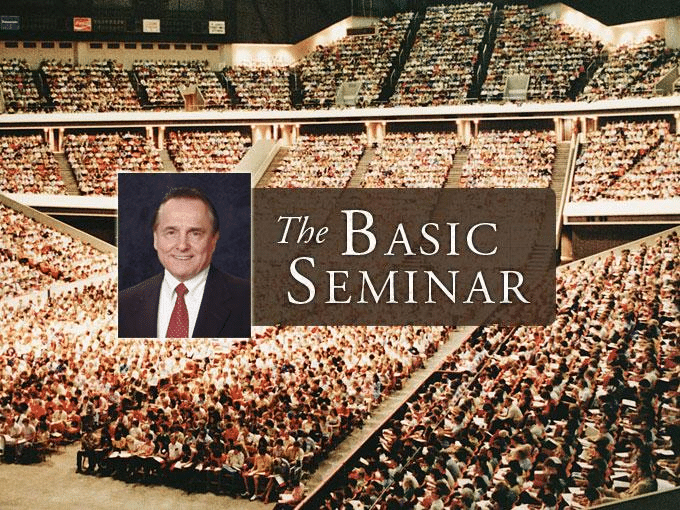
I have had a firsthand look at the teachings and “theology” of IBLP. This involved listening to tapes against the evils of rock music recommended by our pastor, reading IBLP books, pamphlets, and “Wisdom Booklets” available in our church, attending about ten different homeschool and purity conferences, sitting through multiple “Basic” and “Advanced” seminars, volunteering at conferences, attending weekly Character First classes for children in our church, and participating weekly programmes run by local IBLP-enrolled (ATI) homeschool families using IBLP curricula and centered around submission and surrender. Gothard’s odd, prescribed formula for reading the Psalms was a regular practice in our church as were a myriad of things I questioned: “rhema” truths, the umbrella of authority, rejecting credit cards as a form of debt, rejecting mainstream education, and other oddly specific ways to be separated from the world. The last conference I attended and volunteered at was held the year before I started college. In fact, I heard many warnings against higher education in our circles (literal “hell fire” stories) and believed it to be ungodly.
Despite the fact that I was never enrolled in the homeschool program, the lingo, teachings, and practices extended deep into our circles. Even with less direct influence, however, the infiltration (and harm) of Gothard’s teachings is extensive. I know that this was true for many conservative-learning, evangelical, homeschool families in our city from the mid 2000s to 2010s. IBLP was marketed as wholesome, evangelical, and Christian – not as a “cult”. There was nothing that suggested that there was anything different between IBLP teachings and mainstream evangelical teachings, except that IBLP teachings encouraged more radical obedience to the same Scriptural “truths”. Devotion to God was front and center and used as a kind of trojan horse to introduce extreme teachings. IBLP is a global organization – despite having removed Bill Gothard from leadership, they continue to spread the same core teachings in Asia, Australia and New Zealand, and Eastern Europe.
“Look at how many Scriptures are cited in the workbook. Look at how Bill Gothard’s face glows – it must be because he has memorized so much scripture and meditates on Scripture all day long,” my pastor commented during the Basic Seminar viewing at our church.
“Shiny Happy People” essentially identifies four marked outcomes of IBLP teachings: sexual abuse, exploitation, violence, and control. Survivors share firsthand experiences, interspersed with archival footage from conferences and seminars. Of course, this only scratches the surface. Conversations have just begun. Some writers, largely from the Christian nationalist crowd, are worried about the implications of exposing the nature of these kinds of teachings. These react defensively, as if the documentary is an attack on Christianity. I would say that their fears are partly true: much of evangelical Christianity may not have surface-level similarities to the more blatant and extreme characteristics of Gothard’s teachings, but I have found that there are very similar abusive teachings diffused in different forms in evangelical and protestant history, especially in slaveholding theology and Christian reconstructionism/theonomy (from which Gothard drew).
One theme I take away from the documentary is that of wholeness and whitewash. Many Christian parent’s quest for wholesome family life, for healthy, God-honoring homes, led them to seek authority-and-obedience centered transformation. In a world of rapid social changes away from “traditional”, culturally Christian families in American culture, IBLP offered a way for families to stay together and to stay “godly”. Taking children out of the secularized public school system, for example, could ensure that they had a Christian upbringing with a strong focus on Scripture. The key to this transformation would be the vision of fathers, the cooperation of mothers, and the training of children. This would bring about changes from generation to generation, which would bring about social change on a wider scale in America and then throughout the world.
The Duggar family’s reality TV series became integral to IBLP’s mission. My homeschool friends and I watched a couple of episodes and I noticed IBLP teachings were constantly parroted, word for word, from seminars. What we did not know was that this was an incredibly popular series in the US. In contrast to mainstream culture where teenage rebellion, dating, fornication, drug addiction, running away from home, etc. were the norm, the Duggars portrayed traditional, Christian, family values. Children were orderly and obedient. Dating (called courtship), centered parental authority, respect, and purity. The patriarch of the family was portrayed as loving, family-centered, and heavily invested in his children’s lives – the family’s heart turned towards the children and the children’s hearts turned towards the father. In comparison to fashion expressing “Girls Gone Wild” values like rebellion, independence, and sexual freedom, the Duggar girls dressed in “modern modest”, thrifted clothes. They tirelessly served their family and took cake of enormous loads of laundry, cleaning, and childcare. Everything seemed shiny, happy, and whole.
 IBLP’s teachings show that this whitewashed facade was in fact carefully orchestrated. A huge emphasis is placed on a shining, happy countenance – constant smiling, sweet and compliant behavior, radiating joy that beats anything any other people can in the world have. Holiness, godliness, and wholeness is trained via discipline both external and internal, and projected in every aspect of life from homemade whole wheat bread and adherence to Mosaic dietary laws, to rigorous daily spiritual disciplines like prayer and Bible memorization. Everything centers on order – obedience to Scripture and obedience to authority figures, which are synonymous.
IBLP’s teachings show that this whitewashed facade was in fact carefully orchestrated. A huge emphasis is placed on a shining, happy countenance – constant smiling, sweet and compliant behavior, radiating joy that beats anything any other people can in the world have. Holiness, godliness, and wholeness is trained via discipline both external and internal, and projected in every aspect of life from homemade whole wheat bread and adherence to Mosaic dietary laws, to rigorous daily spiritual disciplines like prayer and Bible memorization. Everything centers on order – obedience to Scripture and obedience to authority figures, which are synonymous.
Many young people are taught to believe, desire, and pursue this disciplined, spiritual life of servanthood, submission, and surrender. Devotionalism is a strong component – don’t you want to give God the best? Don’t you want to serve Jesus with your life? Don’t you want to pursue holiness and godliness rather than rebellion and sin? Don’t you want to change the world? This struck a chord with many sincere evangelical Christians, especially youth. Many of the most extreme teachings were directly addressed to young people. In fact, when Bill Gothard spoke at the Southeast Asia Family Conference in 2012, he personally focused on teaching youth and running sessions for youth. In return, he was showered with adulation, gifts, and praise. “What an amazing man who keeps giving, serving, and loving others,” my church members gushed. One friend witnessed him rushing to shake hands with and beam charismatically at a group of fashionably dressed bikers.
We have put legalism into too narrow of a box. If you focus on love, it can’t be legalism. If you teach laws without saying that they help you earn your salvation, it can’t be legalism. Many of “laws” under IBLP teachings were not taught as rules but as “good things”, as the Lord’s ways that can only bring about joy and happiness in keeping with God’s commands. I remember one of my ATI friends at lunch exclaiming in horror when I poured a cup of milk for myself at lunch. Mixing milk and meat, Bill Gothard taught in the Basic Seminar, was bad for health and would prevent calcium absorption. God’s ways were the best ways, so why wouldn’t we want to follow them?
Just last week, a Mennonite leader had us at his house for supper and talked about the swing between law and license. He observed that in strict, closed, and highly controlled settings, Christians don’t actually learn discernment, discipline or discipleship. When they leave, they lose the guidance and control they are used to, and swing into licentiousness. I agreed – there are sadly many young people who can’t imagine following Jesus if they didn’t have church and family rules to follow. They believe that outside the discipline of their authority figures, they would surely be “out on the streets” living an “immoral lifestyle”. This keeps them dependent. Legalism heavily borrows from and uses the language of discipleship because it is solely designed to keep an individual in a place of spiritual abuse and control. Threats of damnation and destruction proscribe rebellion, instilling guilt, shame and fear. You are taught that you need to examine your heart for rebellion, wickedness and more – you cannot trust your instincts, your senses, or your discernment. You need to bring yourself under the power of your leaders.
The horrific thing about all this is how normal and Christian IBLP teachings sound on the surface. It is so easy to make whitewash seem like wholeness, hogwash seem like holiness. How can one tell the difference? For young people who grew up loving Jesus, who were fed destructive teachings, and who witnessed harm, compromise, and abuse, distinguishing Jesus from the wreckage is a deeply challenging task. It involves working through trauma, un-learning ingrained thought processes and responses, and re-learning your entire conception of the world.
Let me be clear: there was nothing godly or moral about a Christian movement that taught us to project extra-spiritual godliness, purity, holiness, morality, and discipleship while enabling, covering for, and grooming victims for sexual abuse. As “Shiny, Happy, People” shows, the name of Jesus was used to prime, groom, and sexually violate compliant, eager-to-please- vulnerable, young women. Then, the name of Jesus was used to silence and suppress the exposure of sin. The perpetrators of this kind of evil, in any group, cannot truly believe in accountability to a supreme, righteous, God, nor can they truly be followers of Jesus – yet they are experts in spiritual language, manipulation, charisma, and Scripture knowledge. All this is used towards their own ends – sexual gratification, the accumulation of power and popularity, and control of the hearts of vast numbers of people. The corruption is so deep and so horrific that there is no justification or excuse that “Some was good, some was bad”. Or worse, “It was the fault of the people who misunderstood and used the good teachings for harmful purposes. There was much truth.”
I know someone who came to believe in Jesus at a Basic Seminar. Somehow, Jesus worked in spite of sinful men and women. Jesus saved. Jesus drew people closer to Him. None of this justifies the bad actors and charlatans like Gothard and those who peddle the same teachings as part of his movement and other movements. Far, far, more people were spiritually harmed and shipwrecked than those who experienced Jesus, and the depth of the abuse and wreckage tells us that we cannot, ever, dare, to try and justify and “redeem” the blatant evil.
Some families seem to have been able to duck and avoid the worst of the harmful teachings and filter them through healthy lenses – yet the harm can be seen in their deliberate blindness and desperate fight to deny the stories and testimonies of survivors. There are still many who choose the path of denial and defense – they would argue that the sexual immorality should never have been exposed, or that it is entirely false. Others would like to pretend that this never happened and argue that it shouldn’t be talked about. There is truly only one Christ-like to respond, however: recognize the evil, acknowledge the harm, and willingly take up the difficult task of repudiation, repentance, and re-learning.
Many Christians are hungry today. They may be tired of and uninterested in cheap grace Christianity, one that has no depth and calls for no sacrifice. Hungry for a Jesus-centered, radical faith, they may be susceptible to those peddling a pseudo-gospel like that of Gothard’s: righteousness, devotion, and discipline.
Today, I cannot tell you what “Christianity” should look like. Does it look like the dedicated memorization of Scripture? Does it look like a heart of total devotion and love for God that drives one to obey and submit to virtually any sacrifice or hardship? Does it look like the kind of devotion that leads to radical decision-making counter to every trend and whim of larger society? Does it mean barricading oneself and one’s family into strict religious isolation to build a “Jesus-centered” world from the ground up without any remotely corrupting influence? Does it mean rejecting everything the world tells you about empowered womanhood and pursuing radical, traditional femininity – motherhood and submission? Surely all these things are good things!
One thing I know is that Gothard turned the Scriptures into a formula for success. Do this, and you’ll get that result. The more disciplined you are, the happier. The more obedient, the more protected. These are guaranteed principles. I saw people living by those principles who didn’t know how to accept the internal and spiritual crisis that came about when it all fell apart and the shiny, happy, façade fell away to reveal the sexual sin of beloved, idolized authority figures. They doubled down and tried to weather the reality that threatened the imaginary world upheld by “faith”, faith not in Jesus but in Gothard’s false promises and principles. I have since learned that fundamentalism including the unshaking belief in the rightness of one’s “godly” ways in opposition to the wrongness of other’s ways. It is the belief that in every aspect of life, there is a definitive and definable way that is better than all other ways and that guarantees good results.
“Keep sweet, pray, and obey” is the title of another documentary, one about the Fundamentalist Latter Day Saints (FLDS) sect. Yet this is at the very core of Gothardism too: seeking to be whole by simply working harder, believing harder, projecting harder. The truth is that nothing replaces the process of healing. No amount of discipline can make a traumatized, broken, hurting, person smile hard enough that they become happy and whole. There is no shortcut.
It is all too easy for Christians of any group to reduce wholeness and godliness down to a checklist. If someone meets these requirements, they are “godly”, even if they engage in gross immorality and abuse others for their own gratification. It simply doesn’t make sense that a belief system dedicated to projecting higher-than-average levels of morality and sexual purity leads people to turn a blind eye to the trangressions committed by leaders, celebrities, and men.
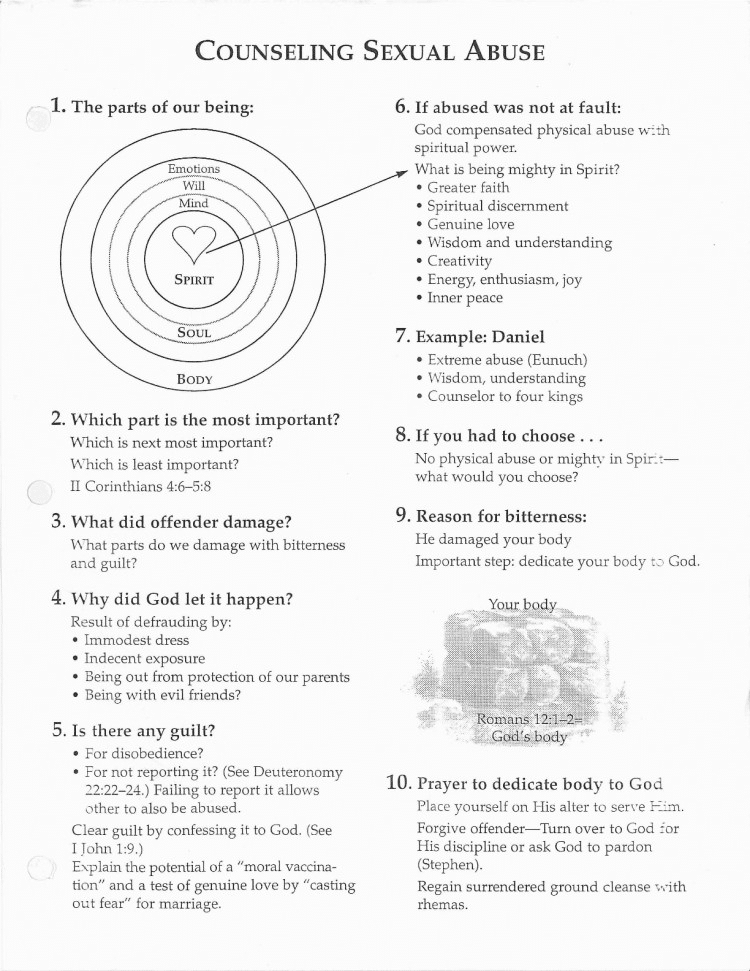
In a world where we judge by appearance, God knows the heart. God knows the pain of the hurting Duggar girls and other IBLP children who were told to forgive, forget, repent, and blame themselves for their abuse, or even to thank God for their abuse and the spiritual growth it would bring. God knows the many families with the “godliest”, most enthusiastic, most spiritual parents with rows of smiling and obedient children whose home life was violent, highly controlled, and even perverse. Looks don’t tell us everything, especially in a Christian world where whitewashing has become an art form, with countless instruction books, seminars, and manuals teaching the way to look right, but with sweeping and devastating ignorance about, for example, mental health and trauma. Many hurting children, neurodivergent children, and abused children have even been “beaten” into compliance and “sweetness” to portray the right level of godliness that reflects favorably the spiritual stature of their parents.
I truly believe it is God who is bringing ungodliness to light and exposure the works of darkness for all to see.
Is there such a thing as a wholesome, loving, Christian family? There are, but there is no such thing as a perfect family. I’ve been in the home of families where parents have done incredibly hard work to overcome trauma and abuse. I’ve been in the home of families where gentleness and humility are at the center of parenting, not control and force. Jesus’s shepherd and servant heart is tangibly present in the midst of real, human, flaws and imperfections. These are overcomers who are doing the work of the Kingdom in creating spaces and communities of safety and light in a work of darkness and danger. As abuse and abusive teachings are uncovered and exposed, I pray that each church community will have at its heart, healthy, whole, Kingdom families discovering a completely different way – the Gospel of peace.
This article originally appeared at KingdomOutpost.org and is reprinted with permission.
Rebekah Mui is the editor of KingdomOutpost.org. She is a Ph.D. student in interdisciplinary social sciences at Virginia Tech University,




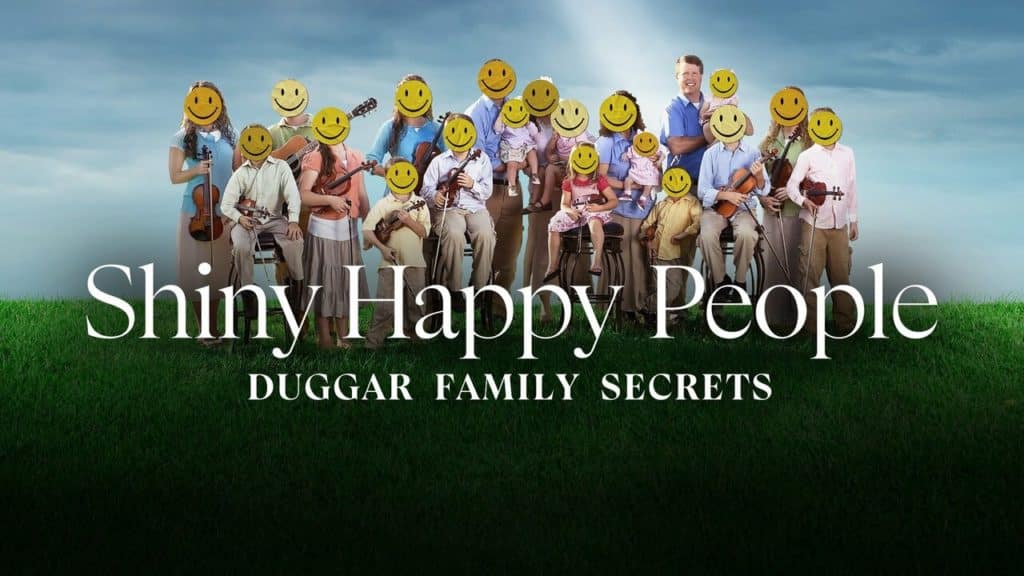
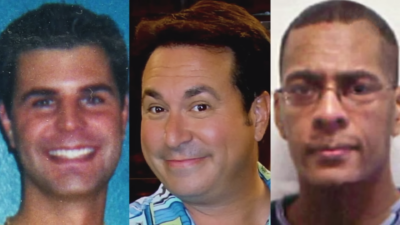




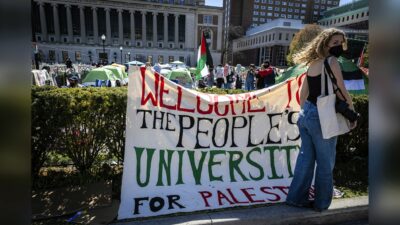









9 Responses
i enjoyed watching the series. i knew nothing about iblp before watching so that was a good education. it really looks like cult to me.
I went to IBLP in 1990. It was total indoctrination, cult-like control techniques, unbiblical teaching, legalism to the hilt. Not Christianity at all. I escaped that world shortly after through the faithful expository preaching of our church leaders, even among Independent Baptist churches.
Powerful writing. Ms Mui pulled no punches.
Rebekah offers a remarkably coherent deconstruction of the IBLP project. So deconstructing something which has gone so wrong, is a burdensome vocation. It becomes hard to contain the dynamic force of the (necessary) deconstructing.
Personally, I find that force cannot be limited to IBLP specifically. Rather it crashes destructively into my sense of both Bible and Christianity. Leaving me with a sense that the Bible too has to be addressed; there being so much in its scripts, that lends itself to the likes of the IBLP project.
I can but offer my respect to Rebekah, for the task she has taken on, for how thoroughly and transparently and coherently she is discharging that task.
It’s amazing to me that so many people blindly follow the instructions on running a family given by someone who has never been married or had a family. The whole thing is weird.
Gothard isn’t the only one. For example, Nancy Leigh DeMoss doesn’t have children and was unmarried at the time she advocated for both wifehood and motherhood in her book “Lies Women Believe.” Apparently in evangelical Christianity we are to do what they say and not what they do.
Grew up in an ILBP church as a kid. The dysfunctional patterns in that church are evident in evangelical churches today.
One of the worst dysfunctional pattern, is the evangelical church’s relationship to the current Republican party, otherwise better known as the Trump cult.
The same exact dysfunctional autocratic dynamics are at play in church as well as party politics.
No. Just no. You’re making the mistake of clumping all conservatives into this mess. People who have a conservative mindset aren’t the dolts you might assume they are. Your experience and resulting beliefs are yours alone, so don’t project them onto the rest of us. You absolutely shouldn’t include those who don’t have an opportunity to disagree with your claims. Obviously you’ve misjudged things before.
I believe much can be learned from the series and abuses in the church should be addressed. The over-emphasis and abuse of authority was and is an ongoing problem. However, the series paints some broad negative strokes against home schooling and Christian values as well. I was disturbed by the not-so-veiled attack on evangelicals.